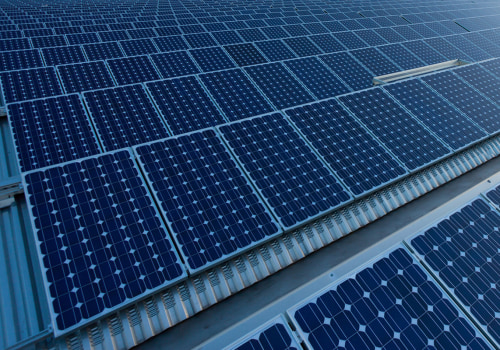Energy Consumption According to the U.S. Energy Information Administration, the average household uses about 893 kilowatt-hours (kWh) per month. A residential solar installation produces between 350 and 850 kWh per month. Solar panels generate their own energy and can therefore largely offset your monthly electricity bill, if not eliminate it.
The higher your bill, the more likely you are to benefit from the change. But you should keep in mind that electricity rates and usage, the main charges on your statement, are volatile. In most cases, installing a rooftop photovoltaic solar panel system will offer a higher lifetime value than staying connected to a conventional utility provider. However, that doesn't mean solar is the right choice for every homeowner.
A payback period is the amount of time it takes to recoup your initial investment. Solar panels can help you save enough money on energy bills over time to offset upfront costs. How much you save each month depends on the size of your solar system, your home's energy consumption, and other factors. Modern residential solar systems operate in different climates and climates.
Home solar energy is more affordable than ever. 96% of homeowners have installed solar energy, or are considering, to save money on utility bills, according to a Pew Research Center survey. In some cases, a home may require extensive renovations to support the weight and needs of a solar energy system. So what is the takeout here? The minimum to use solar energy won't vary greatly, but if your electricity rates are low, your solar system may not generate enough savings to be worth it.
The upfront costs of solar panels are often the biggest consideration when using solar energy, leading many homeowners to wonder if solar is worth it. As an added benefit, if your state offers a property tax exemption for a solar installation, you won't have to pay additional property taxes on the increased property value provided by solar energy. While there is no one-size-fits-all solar solution, here are some resources that can help you determine what's best for you. Solar energy works best in homes with high electricity bills, so evaluating your electricity consumption is the best starting point.
If you know your current energy consumption, you can calculate how much you will have to pay for solar panels. If you buy a solar energy system in the United States, you may be eligible for a 30% federal income tax credit and other local incentives. This is because the savings that a few solar panels would generate over the years are unlikely to cover the minimum costs of hiring a full-service solar contractor. A solar recovery period is an excellent indicator of whether a solar photovoltaic system (photovoltaic system) will be worthwhile for you.
In response to the success of solar and other renewable energy, some powerful energy companies are pushing against net metering policies, jeopardizing some. Solar panels are a manufactured product and, as with any construction process, there is an environmental impact, from the chemicals used to make the panels to transportation and beyond. But the true cost of solar panels, and whether they will help you save money, depends on some key factors. Roofs facing south and west are the best direction for solar panels, as these arrays will receive the most direct sunlight in the northern hemisphere.
Right now, the best way to install solar energy is through a qualified professional who has a certification to do so and works with high quality solar panels. .












Leave a Comment